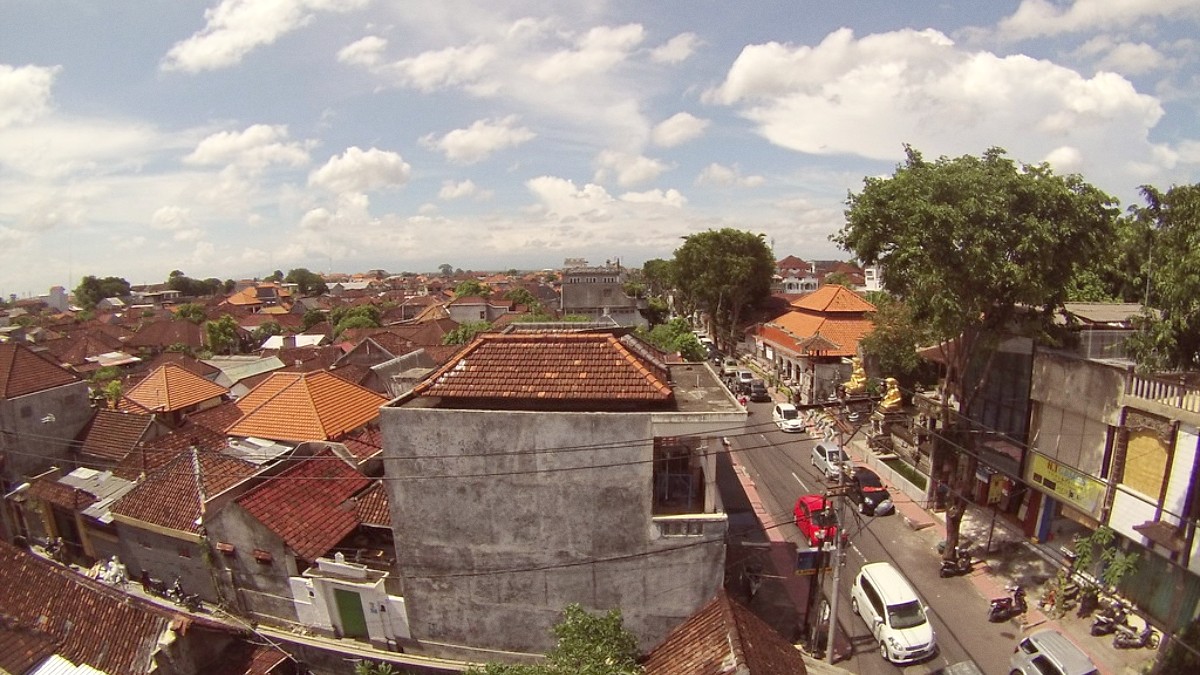
Bali, Indonesia
Denpasar is not merely a transit point; it is a destination in itself, brimming with markets that overflow with fresh produce and local crafts, museums preserving centuries of art, and temples echoing with ancient prayers. Unlike the tourist enclaves of Kuta or Seminyak, Denpasar maintains a robust local identity. This brings travelers a chance to connect with the island's true essence. Prepare to engage with the warmth of its people, taste the authentic flavors of its cuisine, and uncover the historical layers that shape this unique city. Your Denpasar adventure will bring depth to your Balinese journey, with insights and experiences that remain with you long after you return home.
Denpasar is a history rich with ancient traditions and pivotal moments of struggle against colonial rule. Originally known as Badung, the city served as the royal capital of the Badung Kingdom. Its history ties deeply to the Balinese Hindu kingdoms that flourished on the island for centuries, with cultural and religious life at their core. The city’s name, "Denpasar," translates to "north of the market," reflecting the significance of its traditional market, Pasar Badung.
A defining moment in Denpasar’s past is the Puputan Badung of 1906. This event presents a tragic yet powerful act of resistance against Dutch colonial forces. Faced with overwhelming military might, the King of Badung, along with his court and thousands of loyal followers, chose ritual suicide (puputan) rather than surrender. They marched into the Dutch guns, adorned in ceremonial white, symbolizing a fierce determination to protect their honor and spiritual freedom. This act, while devastating, galvanized Balinese identity and stays a potent symbol of resilience. Puputan Badung Square in the city center now commemorates this sacrifice, a reminder of Bali’s enduring spirit.
Expect bustling streets, especially during peak hours, where motorbikes weave through traffic and local life unfolds at a quick pace. The city is a hub of commerce, and you find everything from sprawling traditional markets to modern shopping malls. It is the place to discover authentic local cuisine at "warungs," small, family-run eateries, and engage with Balinese people going about their daily routines.
The main highlights of Denpasar include its historical monuments like the Bajra Sandhi Monument, which features panoramic city views from its top, and the Pura Jagatnatha temple, a significant spiritual site. The Bali Museum gives a deep dive into the island’s rich artistic and cultural heritage. While Denpasar itself does not feature the famous beaches found in other parts of southern Bali, it acts as a convenient launching point for day trips to Sanur, Kuta, Seminyak, or the cultural landscapes of Ubud.
Movement within Denpasar relies heavily on ride-hailing apps like GoJek and Grab, with affordable and convenient travel.
Taxis are also available, with Blue Bird being a reputable choice.
Accommodation options range from budget-friendly guesthouses to mid-range hotels, catering more to local business travelers or those seeking an authentic city stay.
Denpasar is a destination for travelers eager to move beyond the typical tourist itinerary, to connect with the living culture of Bali, and to experience the island’s true administrative and commercial heart.
The city is a gastronomic hub, with numerous local warungs serving authentic Balinese and Indonesian dishes at local prices.
Denpasar, the beating heart of Bali, invites you to discover an island experience beyond the familiar beaches. While many think of Bali for its coastal resorts, Denpasar, as the provincial capital, connects to the island’s authentic pulse. Forget crowded tourist traps for a moment, and consider a place where Balinese traditions thrive, where the aroma of local spices fills the air, and where every corner tells a story of heritage and community.
Denpasar provides a genuine glimpse into Bali’s soul. It is a city that pulses with local energy, a place where business blends with spiritual practice, and where you witness the island's unique identity away from the resort bubble. Prepare for a trip that blends city exploration with cultural immersion, presenting a different perspective on the Island of the Gods.
The city is Bali's commercial and administrative core, with markets like Pasar Badung and modern shopping centers. This contrast showcases the dynamic everyday life of Denpasar residents.
Denpasar offers a , more authentic experience for travelers seeking to understand Bali beyond its tourist facade. It's a journey into the island's true character.
Explore bustling markets, serene temples, and significant monuments that tell Bali's story.
Denpasar presents a different facet of Bali, less about beaches and more about authentic island life. Dive into its markets, explore its history, and witness the daily rhythms of the Balinese people.
A monument dedicated to the struggles of the Balinese people, offering a museum and panoramic views from the top.
A significant state temple dedicated to the supreme God Sang Hyang Widhi Wasa, known for its beautiful architecture.
Denpasar's largest traditional market, offering a immersion into local life, fresh produce, spices, and crafts.
Located near Pura Jagatnatha, the Bali Museum showcases the island's rich artistic and cultural heritage through a collection of artifacts, traditional costumes, and ancient artworks.
Bali's largest traditional market, ideal for fresh produce, spices, and a glimpse into daily Balinese life.
Located across from Pasar Badung, it specializes in Balinese traditional arts, crafts, and textiles.
A local night market in Sanur, a short drive from Denpasar, known for its street food and lively evening atmosphere.
Wear respectful clothing, covering shoulders and knees, especially in busy local areas.
Always use your right hand when exchanging money or touching items, as the left hand is considered impure.
Local markets can be chaotic. Patience and a respectful attitude go a long way.